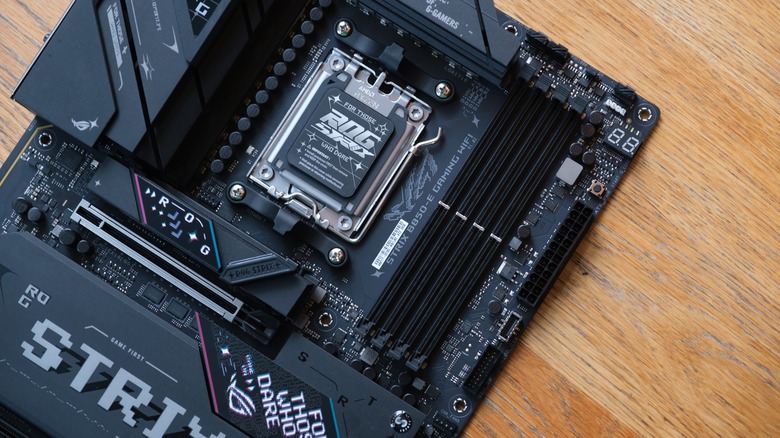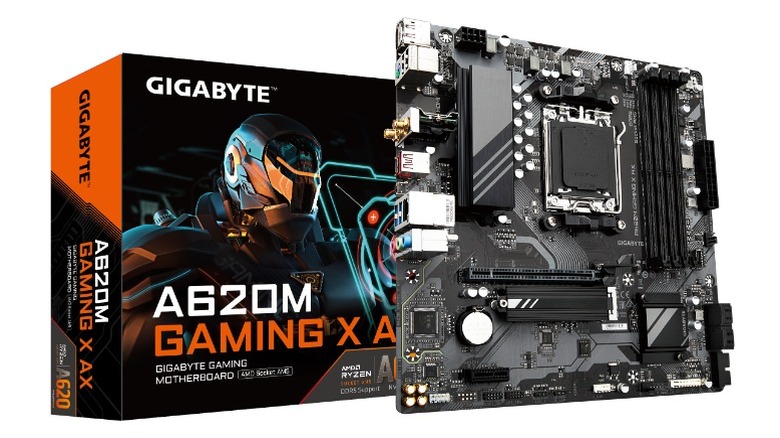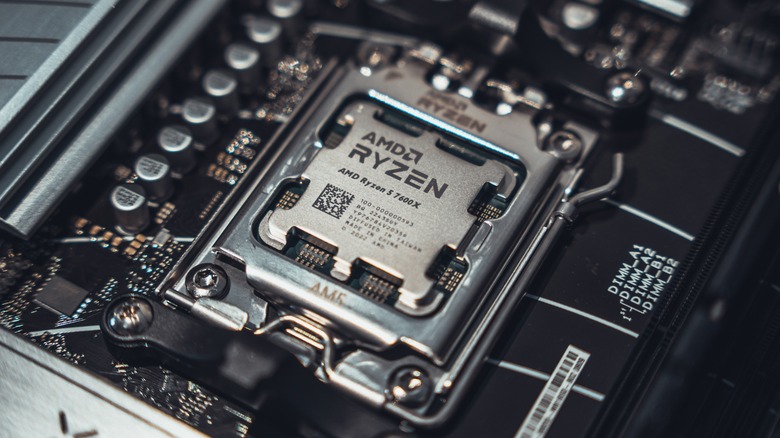Why Buying Used AM5 Motherboards Can Be A Safer Option Than Used AM4 Boards For PC Builders
Building a computer can be an expensive endeavor, especially if you need to set aside a few hundred dollars for a powerful graphics card for gaming. That's why a lot of PC builders try to save a few bucks by getting some of their components on the used market. Two of the first things that you'll need to pick out are your CPU and your motherboard. These two components are at the heart of any build, setting the tone for the other components you'll need in order to bring about the best performance possible.
CPUs need to meet specific requirements for the kind of motherboard they can fit in. It isn't just that Intel and AMD use different socket types, but different models and generations from the same manufacturer may have different fitting and power requirements. AMD's Ryzen desktop CPUs have had two kinds of socket fittings since the brand released its popular Zen architecture in 2017, excluding its Threadripper models. The Ryzen 1000 through 5000 series that were made until 2022 all use AM4, while the newer Ryzen 7000 and 8000 series now use AM5.
As tempting as it might be to go with AM4 on the used market because of its lower prices compared to AM5 boards, there are a few more risks with them. AM5 models aren't just newer and more futureproof, they're also the more reliable choice to purchase second-hand.
AM5 boards tend to be in better shape
AM5 motherboards being newer means they're typically a safer bet than AM4 models. The AM5 platform was only just released in late 2022, so even the oldest models are less than three years old and are less likely to have extensive wear and tear compared to its predecessor. Moreover, there have been a lot more budget-oriented AM4s launched over the years, which, while perfectly functional, might not offer the strong power delivery and VRM quality that higher-end AM4 models have.
AM5, on the other hand, was launched alongside the powerful Ryzen 7000 series, and even its more budget-minded models have needed enlarged VRMs, high memory clock speeds, and high power-stage delivery to adequately support these newer processors. That said, newness isn't necessarily a guarantee of condition. You'll still want to take the time to look over and, if possible, test any used components to make sure that they're in good condition. This is another area where AM5 boards have the edge, however.
The AM4 socket is pin-based. It uses tiny golden contact pins on the CPU to connect to the motherboard, which are delicate and can break easily. This is a bigger consideration when buying a CPU than a GPU, but it's also a possible stress point for the pin holes and the attached locking mechanism if not used correctly. AM5 CPUs and motherboards use LGA (Land Grid Array) tile-based connections. These seem to be a bit more resilient and are also much easier to check for damage since all the connections are right on the surface.
No need to worry about compatibility
Another reason that AM5 is a safer option has to do with the compatibility of the CPU and the motherboard's BIOS. All AM5 motherboards can support all Ryzen 7000 and 8000 CPUs, and is already planned for use in the 9000 generation and possibly even beyond. This means that those who are getting one of these boards now should be able to get any processor from these lines and connect it to the board without issue, while also having a potential upgrade path in the future. As of right now, there are no immediate plans for new CPUs to go back to the AM4 system.
Additionally, not all AM4 processors are compatible with all AM4 motherboards out of the box. The issue is that all of the post-Ryzen 3000 motherboards required a specific BIOS patch that would allow them to properly connect. So, even though the newer chips might fit perfectly in the socket, the computer won't be able to boot without the update. The problem is that most people need a computer that can boot in order to update the motherboard's BIOS in the first place. Those who already own a Ryzen 1000 or 2000 CPU can perform the update before installing a new chip, but not everyone has an older Ryzen CPU just lying around.
Those who have a newer Ryzen CPU and attempt to connect it to an non-updated motherboard won't be able to activate their PC. This makes buying a used AM4 motherboard a bit of a gamble if you're planning to pair it with a newer chip, unless you can verify the BIOS version of the motherboard and cross reference it to make sure that it's compatible with your CPU first.


